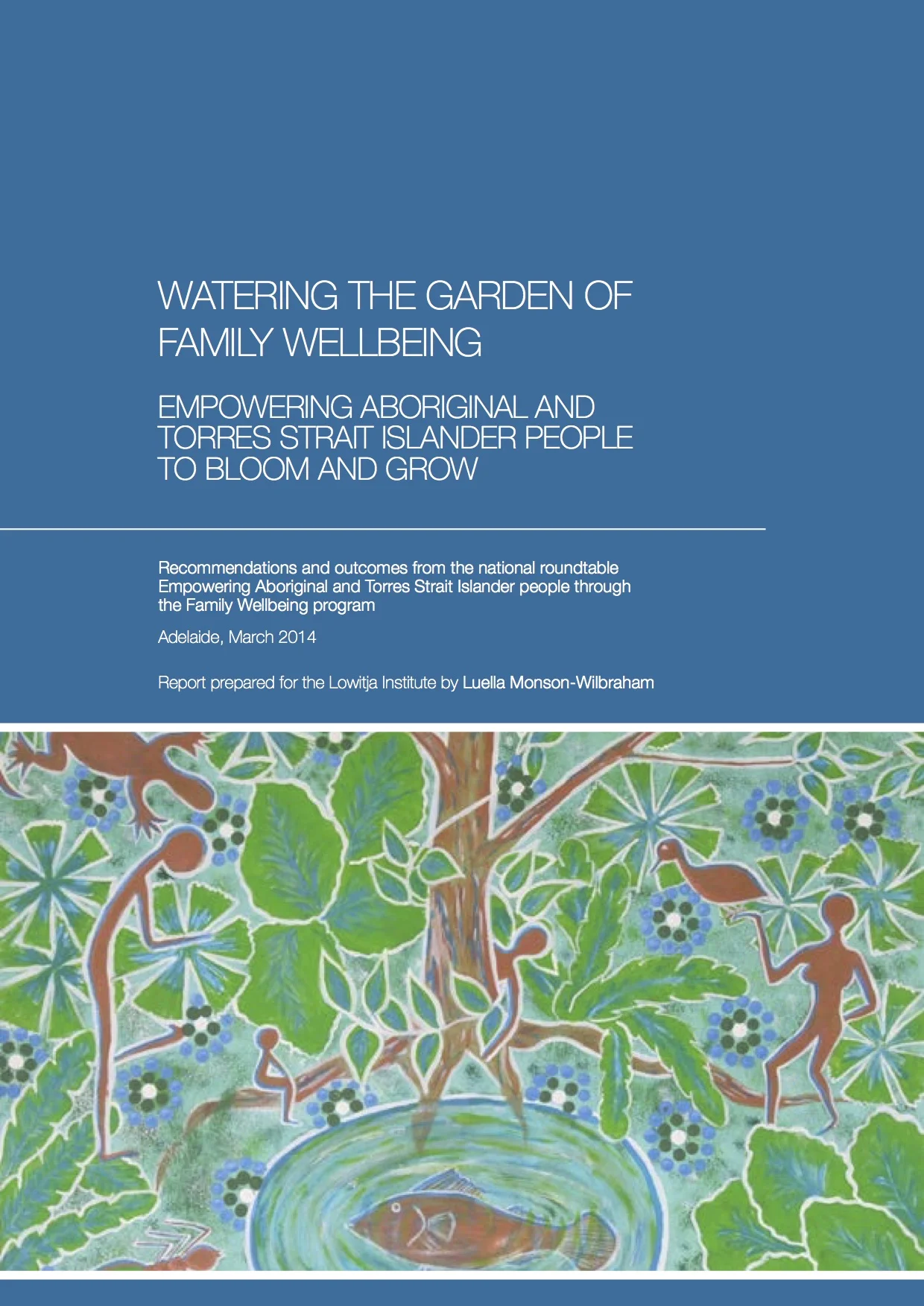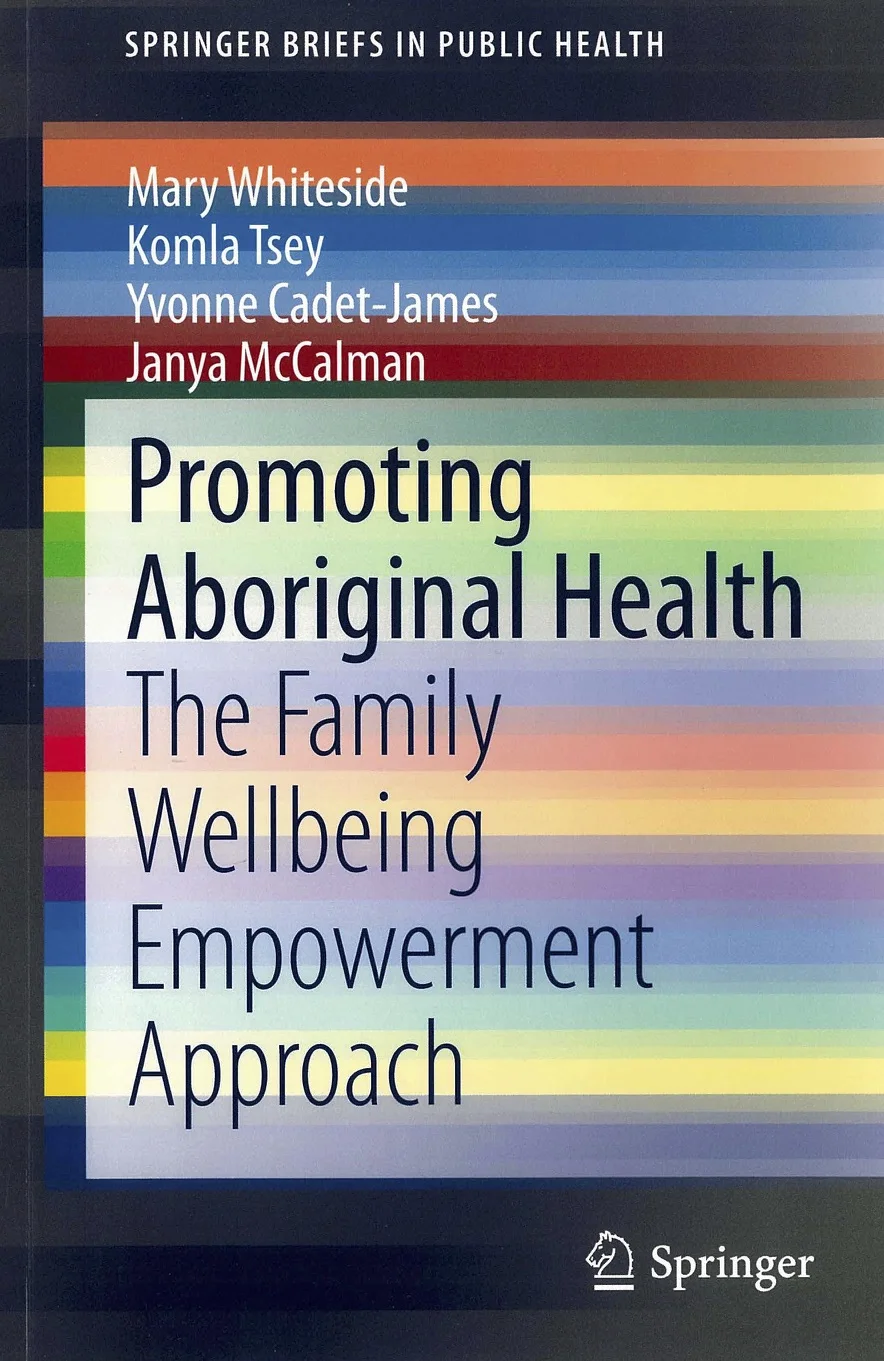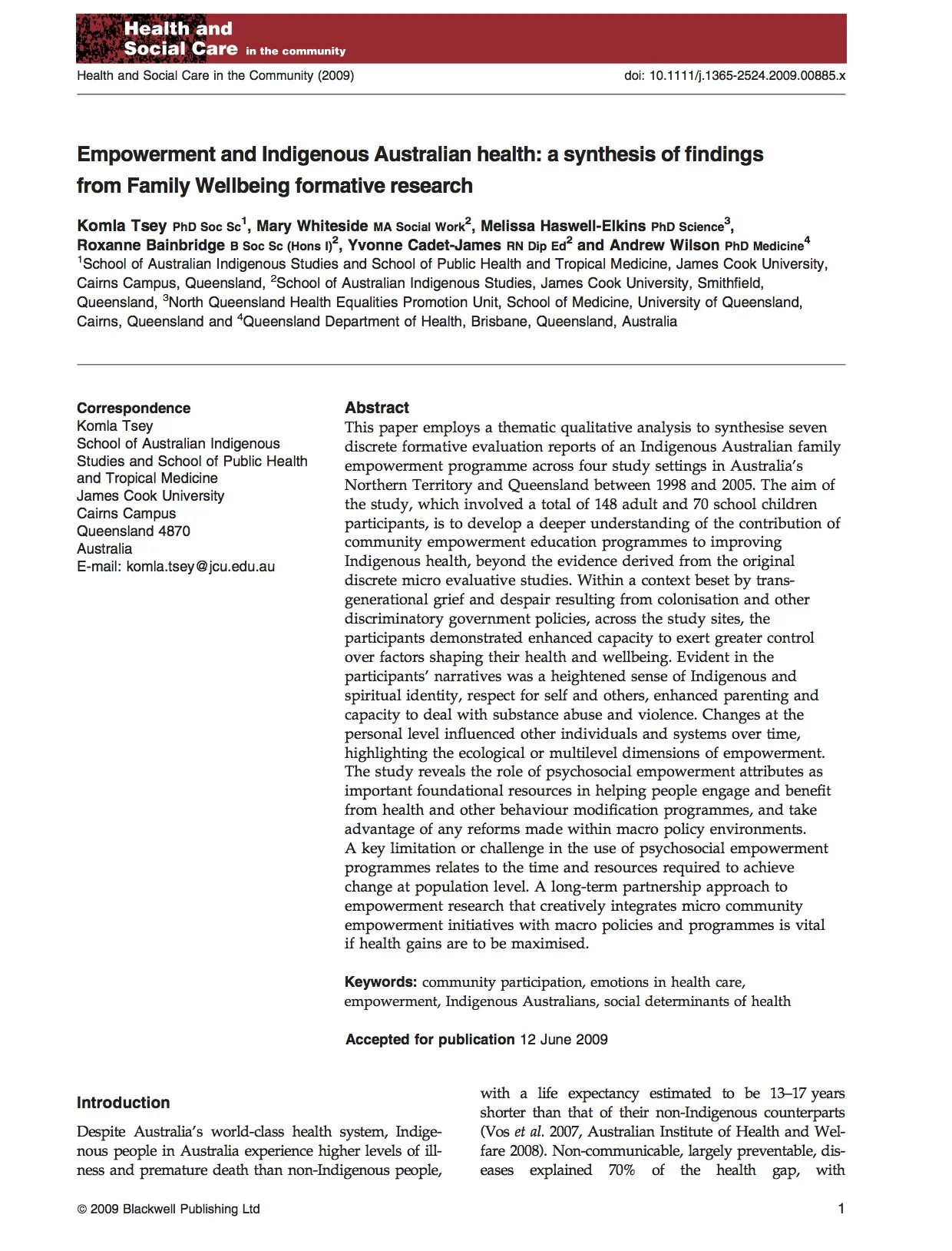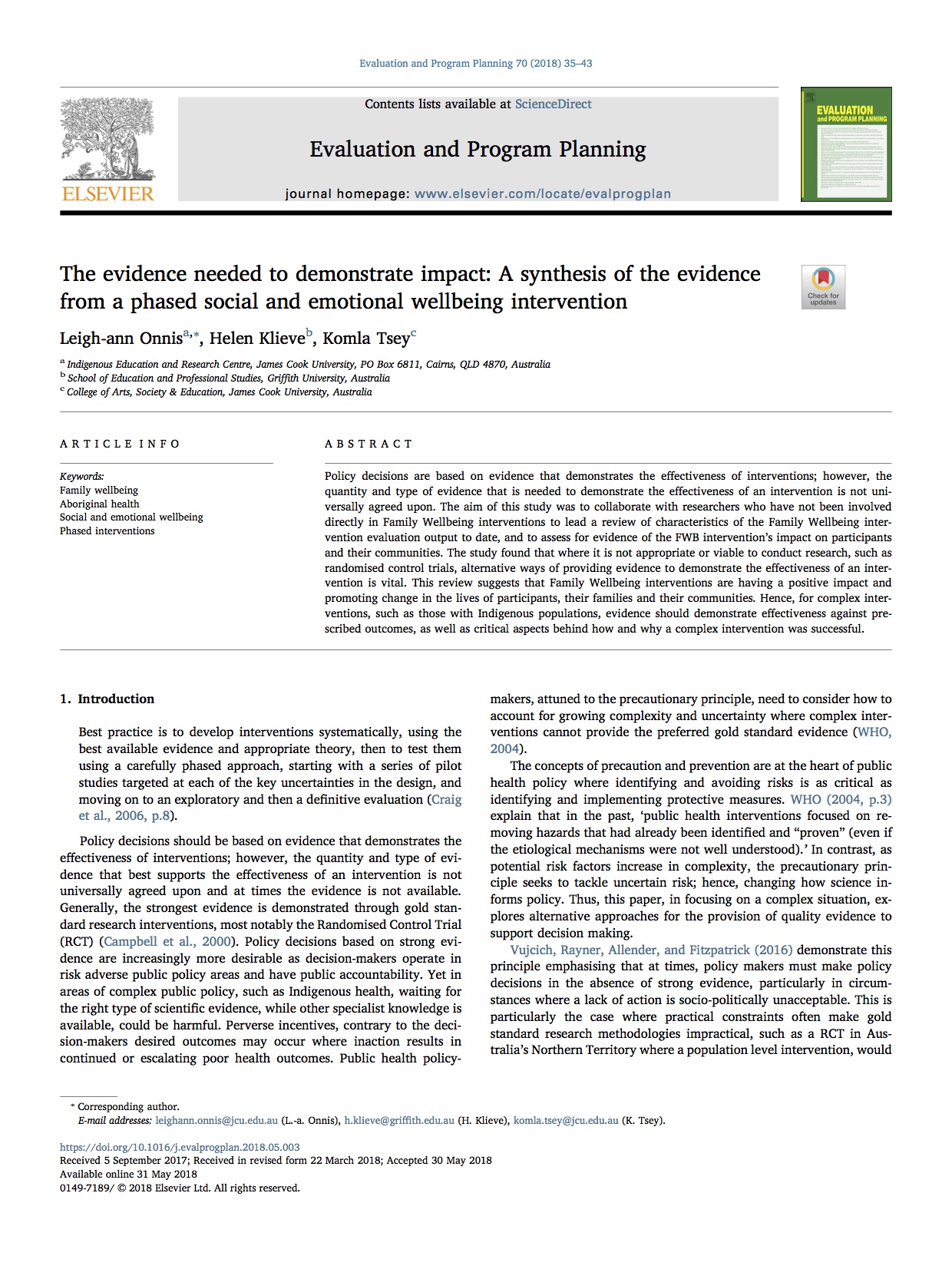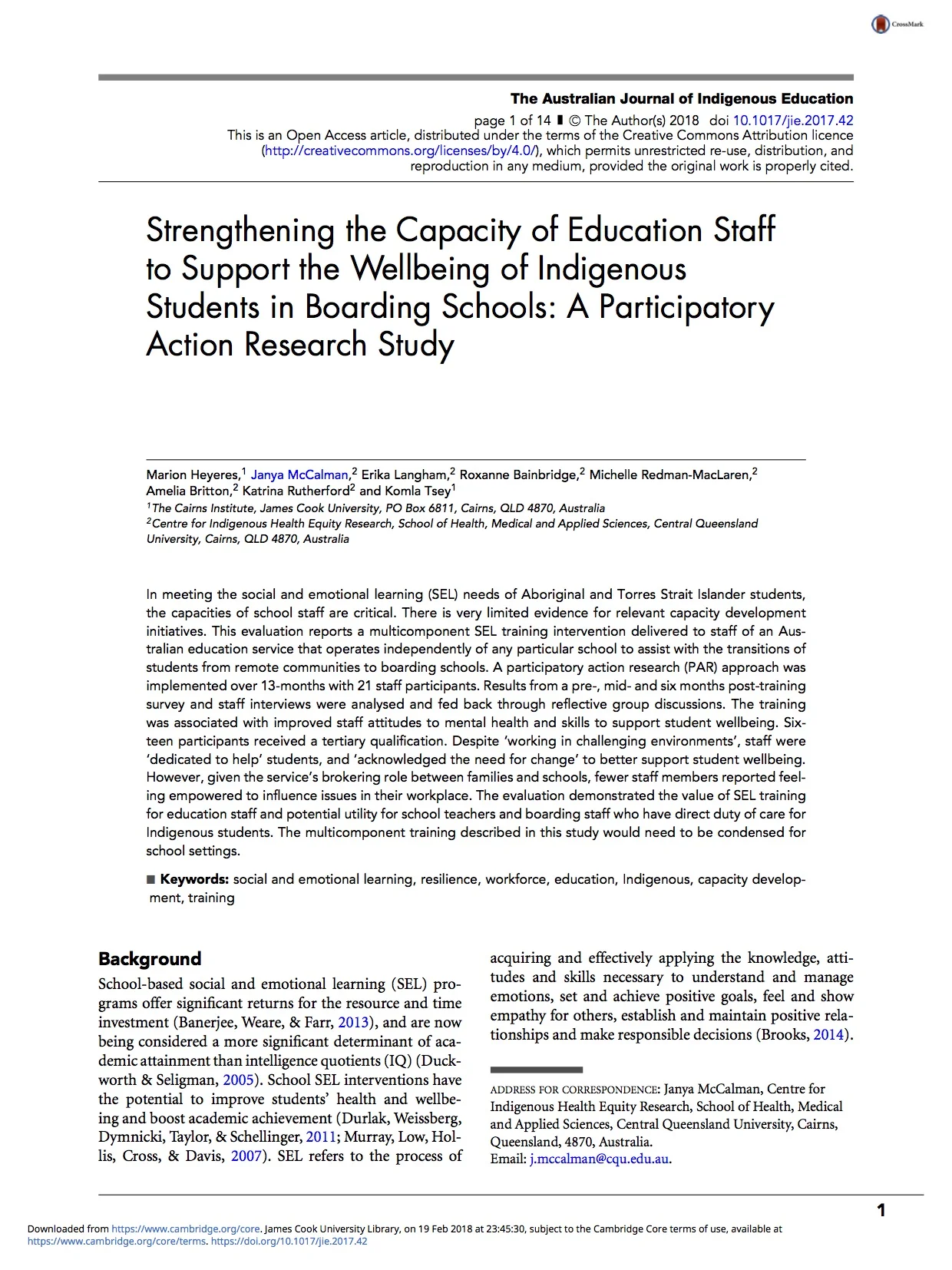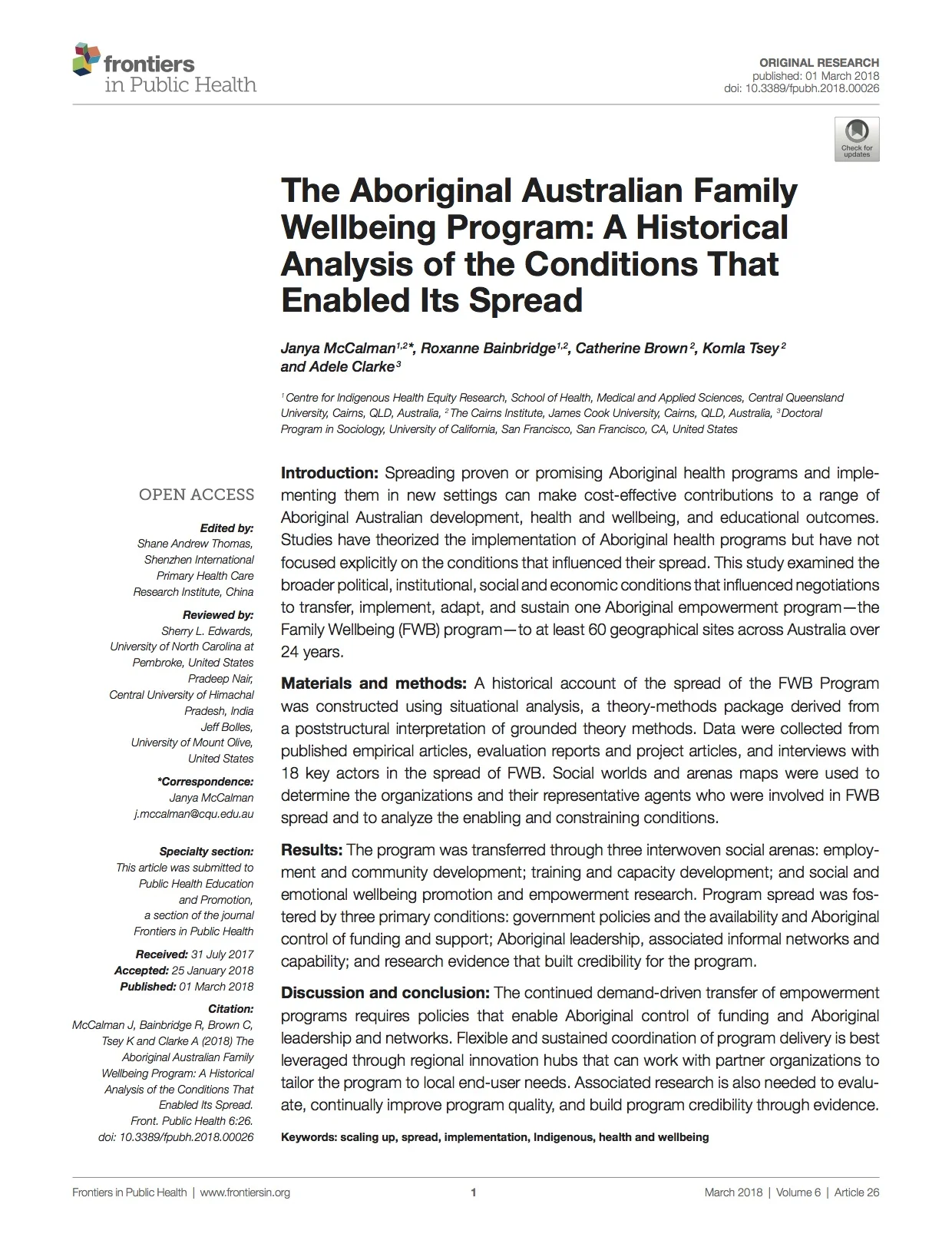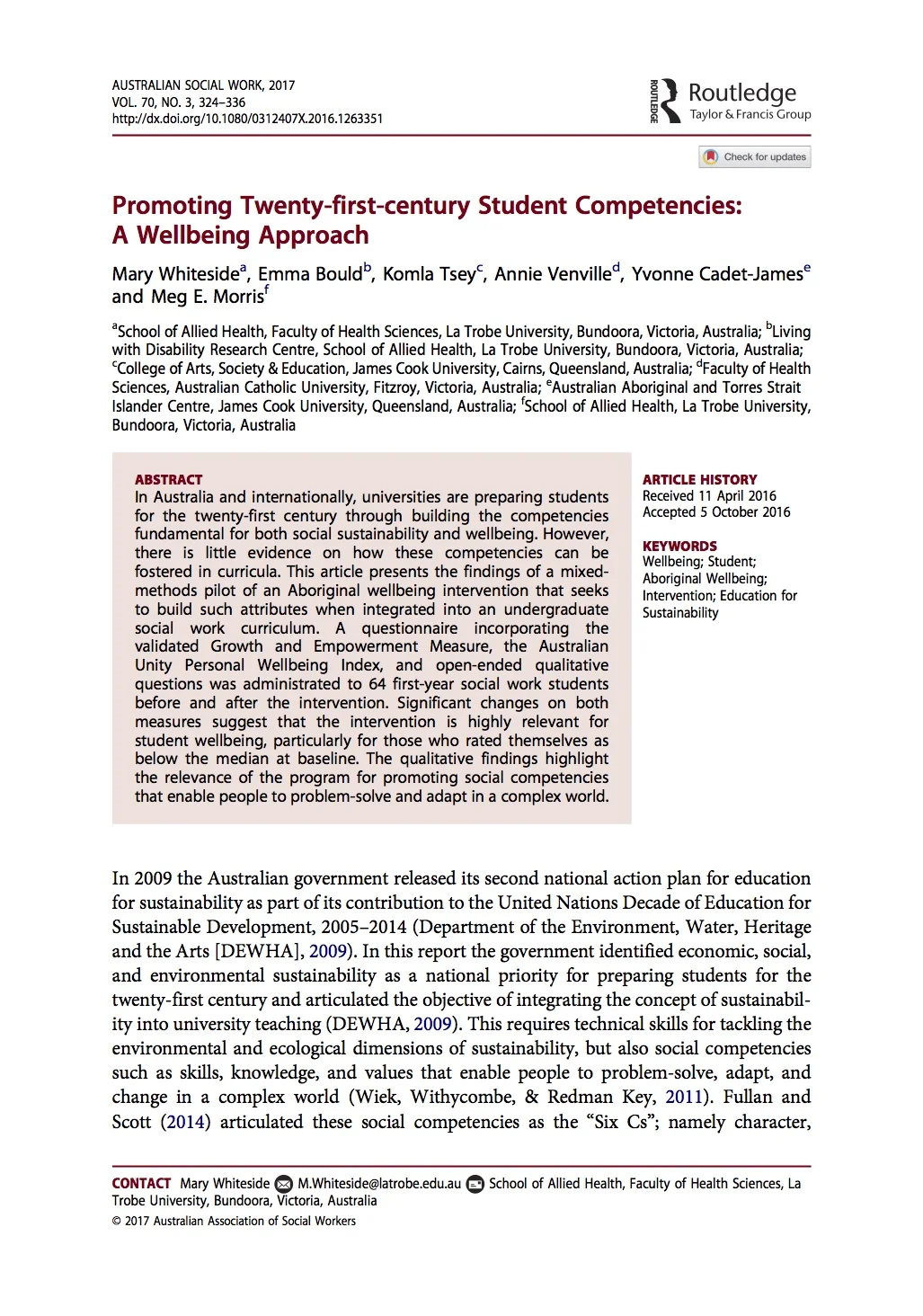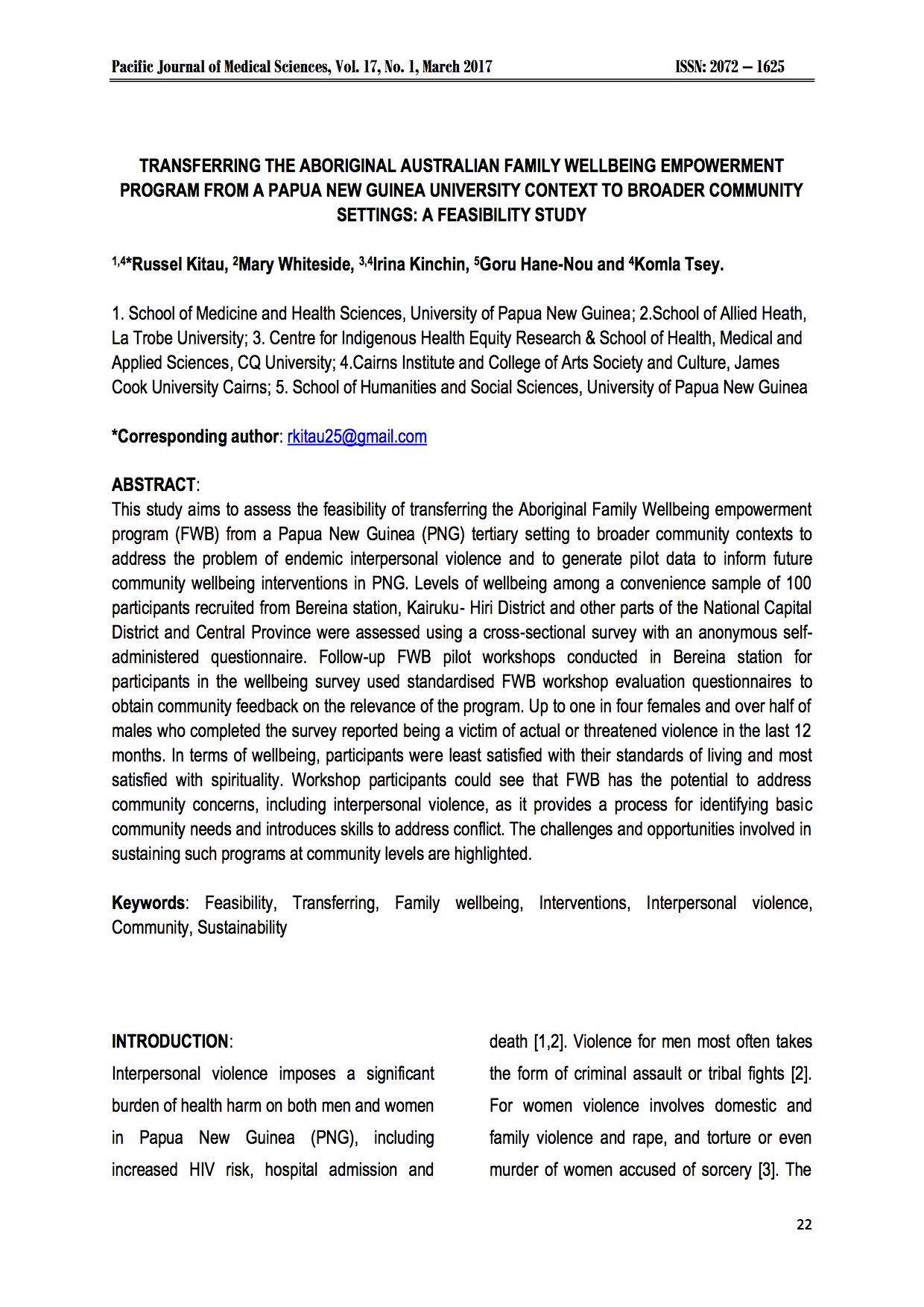Media and Publications
See our stories from Family Wellbeing participants, partner organisations and researchers.
WARNING: Aboriginal and Torres Strait Islander readers are advised the content on this web page may contain images and voices of people who have died.
Watering the Garden of Family Wellbeing.
Brief Overview:
Outcomes and recommendations from the national FWB roundtable in Adelaide 2014. The roundtable brought FWB members together to share knowledge and plan for the future of FWB.
Click on image for paper
Promoting Aboriginal Health: The Family Wellbeing Empowerment Approach.
Brief Overview:
The development of the FWB program, it's spread, the basic foundations the program's content, stories from participants.
Whiteside, M., Tsey, K., Cadet-James, Y., & McCalman, J. (2016).
Click on image for paper
Empowerment and Indigenous Australian health: a synthesis of findings from Family Wellbeing formative research.
Brief Overview:
Contribution of community empowerment education programmes to improving Indigenous health. The role of psychosocial empowerment attributes in helping people engage and benefit from health and other behaviour modification programmes
Tsey, K., Whitside, M., Haswell-Elkins, M., Bainbridge, R., Cadet-James, Y., & Wilson, A. (2009).
Click on image for paper
The evidence needed to demonstrate impact: A synthesis of the evidence from a phased social emotional wellbeing interventions.
Brief Overview:
Review of the FWB intervention's impact on participants and their communities.
Onnis, L., Klieve, H., & Tsey, K. (2018).
Click on image for paper
Teaching “soft skills” to university students in China: The feasibility of an Australian approach.
Brief Overview:
Assessing the feasibility of the FWB programme as a soft skills teaching programme. Results showing a positive impact on the soft skills of the participants.
Yan, L., Yinghong, Y., Lui, S., Whitside, M., Tsey, K. (2017).
Click on image for paper
Strengthening the capacity of education staff to support the wellbeing of Indigenous students in boarding schools: A participatory action research study.
Brief Overview:
Evaluation of social and emotional wellbeing training for education staff, demonstrating value and potential utility for education providers and boarding school staff who have a duty of care to Indigenous students.
Lanham, E., Bainbridge, R., Redman-MacLaren, M., Britton, A., Rutherford, K., & Tsey, K. (2018).
Click on image for paper
The Aboriginal Australian Family Wellbeing Program: A historical analysis of the conditions that enabled its spread.
Brief Overview:
Examination of the broader political, institutional, social and economic influences on the development, implementation and sustainability of the FWB program.
McCalman, J., Bainbridge, R., Brown, C., Tsey, K., & Clarke, A. (2018).
Click on image for paper
Promoting twenty-first-century student competencies: a wellbeing approach.
Brief Overview:
FWB as an intervention to build social sutainability and wellbeing attributes of students when integrated into an undergraduate social work curriculum.
Whiteside, M., Bould, E., Tsey, K., Venville, A., Cadet-James, Y., & Morris, M. (2017).
Click on image for paper
Transferring the Aboriginal Australian family wellbeing empowerment program from a Papua New Guinea University context to broader community settings: A feasibility study
Brief Overview:
Assessment of the feasibility of transferring the FWB program from a Papua New Guinea(PNG) tertiary setting to the broader community to address the problem of endemic interpersonal violence problems and to generate data to inform future community wellbeing interventions in PNG.
Kitau, R., Whiteside, M., Kinchin, I., Hane-Nou, G., & Tsey, K. (2017).
Click on image for paper
CLICK ON THE VIDEO LINKS BELOW TO VIEW FAMILY WELLBEING STORIES.
Additional information about the Family Wellbeing program may also be found at
The Lowitja Institute. The Family Wellbeing Program: Empowerment Research.
Social and Emotional Wellbeing Services. 18 Years of the Family Wellbeing Program.

